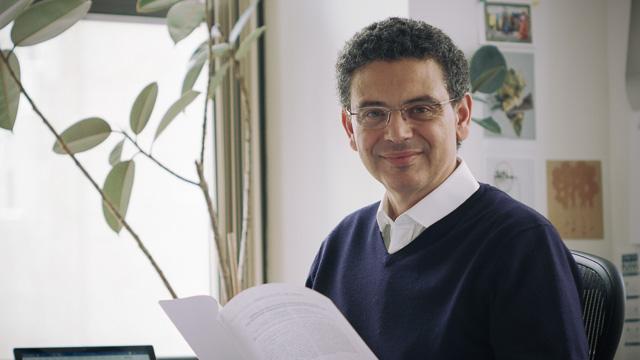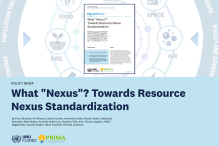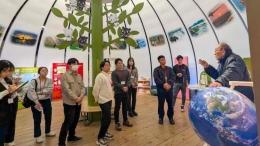On 27 April 2023, UNU will host “A Human Development Perspective for a Transforming World”, a BIG IDEAS Dialogue with Pedro Conceição, Director of the Human Development Report Office, United Nations Development Programme. This event will start at 18:00 in the 1F Annex Space at UNU Headquarters in Tokyo.
The human development journey is unfolding in uncharted territory amid sweeping societal transformations on par with the Industrial Revolution. The Human Development Report 2021/2022 frames the current context — with its enormous promise and pressing threats — in terms of three overlapping layers of uncertainty: intertwined planetary pressures and inequalities, technological change, and intensifying societal polarization.
This context calls for a fresh appraisal of what development as freedom might mean and how development journeys can be steered not just to survive but to thrive in uncertain times. The Human Development Report Office is leading an ambitious research agenda to explore how we might drive transformations towards a more just and livable planet, and what a human development lens can provide in terms of practical, positive action.
Mr Conceição will join UNU Senior Vice-Rector Sawako Shirahase to discuss the findings from the Human Development Report 2021/2022. The event will outline future areas of research and discuss how the Human Development Report and related metrics can contribute to future development discussions, such as the 2023 SDG Summit, the 2024 Summit of the Future, and the Beyond GDP Agenda.
Please note this event will be in English; Japanese interpretation will not be provided. Advance registration by 26 April is required.
Additionally, please be prepared to present identification at check-in.
About the speaker
Pedro Conceição is Director of the Human Development Report Office, United Nations Development Programme (UNDP). Prior to that, from October 2014, he was Director, Strategic Policy, at the Bureau for Policy and Programme Support of UNDP, where he co-led the UN’s participation in the G20 Finance and Central Bank Governors Meetings, managed UNDP’s engagement in the Financing for Development processes, and contributed to articulating UNDP’s support to the implementation of the 2030 Agenda and the Sustainable Development Goals. Before that, we was Chief Economist and Head of the Strategic Advisory Unit at the Regional Bureau for Africa (from 1 December 2009). From March 2007 to November 2009 he was Director of the Office of Development Studies (ODS) and Deputy Director of ODS from October 2001 to February 2007.
His work on financing for development and on global public goods was published by Oxford University Press in books he co-edited (“The New Public Finance: Responding to Global Challenges”, 2006; “Providing Global Public Goods: Managing Globalization”, 2003). He has published on inequality, the economics of innovation and technological change, and development in the African Development Review, Review of Development Economics, Eastern Economic Journal, Ecological Economics, Environmental Economics and Policy Studies, Technological Forecasting and Social Change, among others. He has co-edited several books including: “Innovation, Competence Building, and Social Cohesion in Europe — Towards a Learning Society” (Edward Elgar, 2002) and “Knowledge for Inclusive Development” (Quorum Books, 2001).
About the series
The BIG IDEAS: SDGs Dialogue Series introduces the people, projects, and organisations behind shared efforts to achieve the Sustainable Development Goals (SDGs). Each event features leading representatives and researchers from international organisations, UN agencies, and UNU institutes to stimulate discussion on sustainable development issues and initiatives. The events provide a unique opportunity for young researchers, graduate students, and civil society to become more familiar with SDG-related topics, ask questions, and learn how they can contribute to local and global SDG progress.




